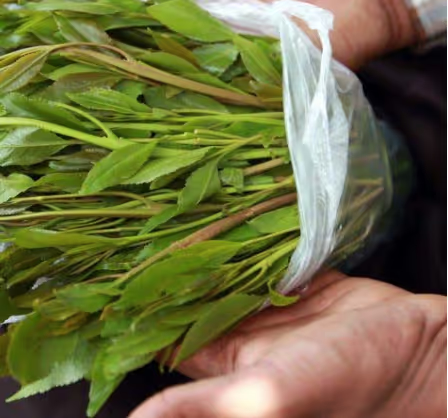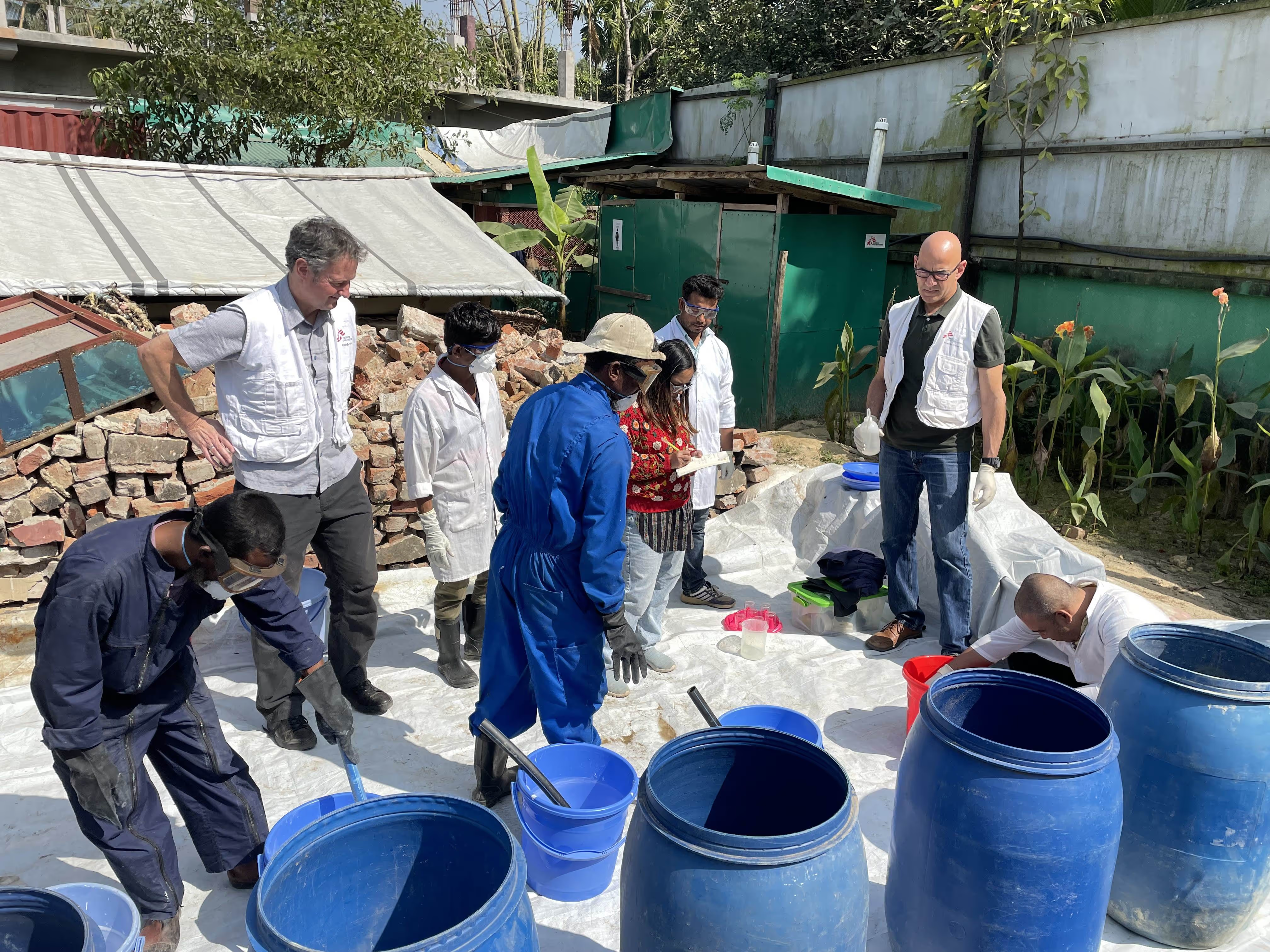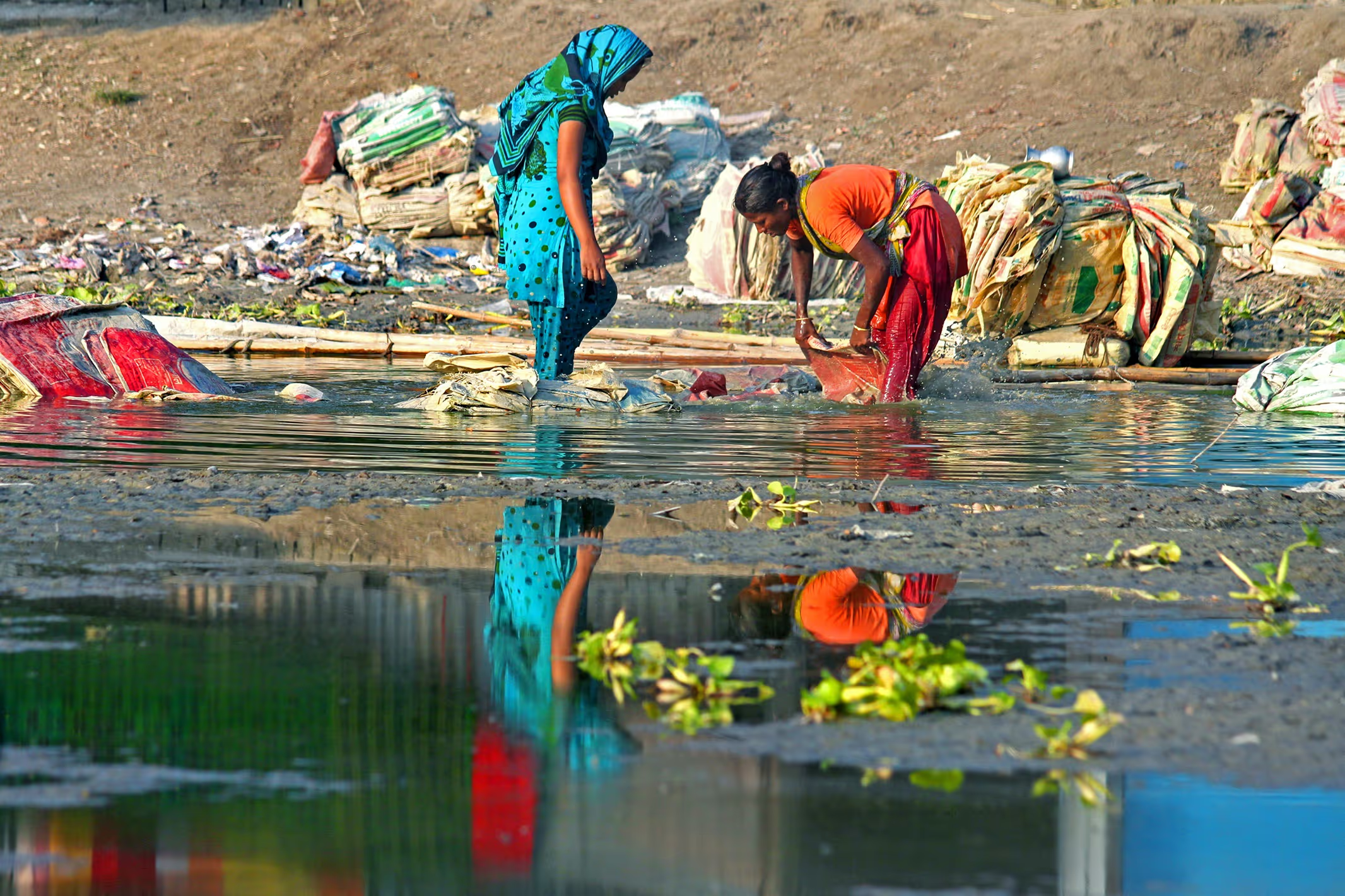A plant as a potential source for family conflict

It is a flowering evergreen plant, also a mild stimulant, native to East Africa and the Arabian Peninsula. To experience its stimulant properties, users of this plant simply chew the green leaves, keeping a ball of partially chewed leaves against the inside of their cheek. This practice involves picking tender leaves of the plant, putting them into one side of the mouth, chewing and storing the chewed leaves in the same side of the mouth for a period of time. People usually chew this plant to get psycho-stimulation effect in the form of euphoria and excitement resulting from the cathinone contents.
This plant is called khat. It is not a food, and is considered by countries, such as the United Kingdom, Canada, many parts of Europe and the United States, as a drug or as a controlled substance with the potential for abuse. But khat has been legally cultivated, traded and chewed in Ethiopia, Somalia, Kenya, Djibouti and Yemen. Research conducted in many parts of the world suggests that khat leaves contain cathinones, an active brain stimulant that is similar in structure and pharmacologic activity to amphetamines. Like amphetamines, khat intake results in decreased appetite, euphoria, increased intellectual efficiency, and hyper-alertness.
In Dollo Ado refugee camp, one can see the popularity of khat. People, mostly men, gather in shops, purchase the khat and sit in the tea shops and chew—holding khat in one hand and the famous Somali tea in the other. The qualitative data that we recently collected to inform our curriculum development included questions about khat and ask what respondents think of khat and how it is affecting families. The vast majority of respondents reported the negative effects of khat as opposed to what chewers usually say about it.
According to our respondents, the habit of khat chewing was loosely practiced in their country of origin; however, people are using it more in the refugee camps than back home. Many respondents reported numerous social, economic and health consequences of khat use. Similar to research done in many parts of the world, respondents indicated that khat is a drug forbidden by their religion (Islam); chewing it is considered socially unacceptable behavior; it economically affect families as money is spent on khat while kids are going hungry; unproductive amount of time is spent on chewing khat; has severe health effects such as psychological and physical consequences; and all agreed that the chewers are seen to display and practice aggressive behaviors hugely contributing to violence between those within intimate relationships.
As has been shared in the previous reports, we are developing an intervention that aims to prevent intimate partner violence and now we see the need to address khat use as part of preventing intimate partner violence. While the consequences of khat are known to many, there is a need for effective programming to minimize the harm that khat does to individuals, couples, families and communities.
Thus, following a harm reduction approach, we are developing curriculum content on khat for our intervention and hope to increase awareness of the impacts of khat use and to empower and to reduce the harm of khat use for many of the families. We believe that this will be an important way of preventing violence and reducing risks of violence.
By Samuel Tewolde
Intervention Specialist for Emergency Operations
WAHA International-Ethiopia
Stay updated
Sign up for our newsletter to receive regular updates on resources, news, and insights like this. Don’t miss out on important information that can help you stay informed and engaged.
Related articles



Explore Elrha
Learn more about our mission, the organisations we support, and the resources we provide to drive research and innovation in humanitarian response.